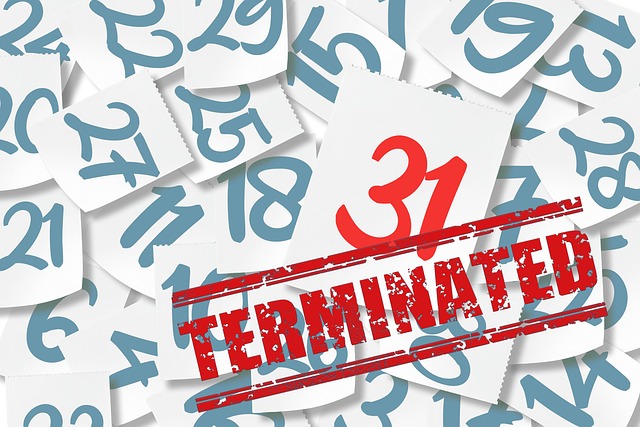Oregon's child support enforcement agencies, like the OCSEA and OSEP, facilitate the collection of support payments from non-custodial parents to ensure the financial well-being of their children. This structured process involves court orders, legal mechanisms (e.g., wage garnishments), communication services, and regular reviews, balancing the rights of parents while prioritizing the best interests of the child. Navigating these services ensures fair enforcement, timely payments, and ultimately, the health and education of Oregon's children.
In Oregon, understanding the enforcement of child support is crucial for ensuring financial stability for children and their families. This article delves into the intricacies of Oregon’s Child Support Enforcement Agency (OSEA), explaining how the support payment process works. We explore legal requirements for enforcing support payments, outline the rights and responsibilities of involved parents, and provide resources to navigate Oregon support enforcement effectively, emphasizing the importance of adhering to these legally binding agreements.
- Oregon's Child Support Enforcement Agency
- How the Support Payment Process Works in Oregon
- Legal Requirements for Enforcing Support Payments
- Rights and Responsibilities of Parents Involved
- Resources for Navigating Oregon Support Enforcement
Oregon's Child Support Enforcement Agency

In Oregon, the enforcement of child support payments is managed by the Oregon Child Support Enforcement Agency (OCSEA). This agency is responsible for ensuring that non-custodial parents fulfill their financial obligations towards their children’s welfare. The OCSEA uses a systematic approach to enforce support payments, involving various legal mechanisms and processes. They work closely with courts, law enforcement, and other government agencies to ensure compliance with child support orders.
The support payment process begins when a court issues an order specifying the amount and schedule of payments. The OCSEA then monitors and collects these payments, utilizing tools such as wage garnishments, tax refunds intercepts, and banking levies. They also provide services like locates, where they help locate non-paying parents, and direct deposits, ensuring that support funds reach the custodial parent efficiently. The agency’s primary goal is to protect the best interests of children by ensuring their financial needs are met through lawful enforcement of support payments.
How the Support Payment Process Works in Oregon

In Oregon, enforcing support payments for children involves a structured process designed to ensure financial stability for minor children. The journey begins when a court orders a parent or guardian to pay child support, based on factors like income, parenting time, and the needs of the child. This legal obligation is then managed by the Oregon Support Enforcement Program (OSEP), a division dedicated to collecting and distributing these payments. OSEP uses various tools, including wage assignments, tax intercepts, and other financial measures, to ensure compliance with the court-ordered support plan.
The support payment process is both systematic and adaptable. It includes regular reviews of income and expenses to make sure the payer is contributing appropriately. If a parent falls behind on payments, OSEP facilitates communication and may escalate collection methods while also offering resources for those who owe child support to help them get back on track. This balanced approach aims to protect the best interests of the child while maintaining fairness throughout the enforcement process.
Legal Requirements for Enforcing Support Payments

In Oregon, enforcing support payments is a structured process designed to ensure financial obligations for children’s well-being are met. The state has established legal requirements that dictate how support payments are collected and distributed. These laws govern both the parent or guardian responsible for payment (obligor) and the entity tasked with collecting (enforcing agency). Key aspects include timely filing of child support orders, regular reporting by obligors, and periodic reviews to adjust payments based on changes in income or other factors.
The Oregon support enforcement system leverages a combination of methods to enforce these payments. This includes wage garnishment, where employers deduct a portion of the obligor’s earnings, and bank account levies. Additionally, the state may suspend driving privileges or license renewals until backlogs are paid. Legal support enforcement is also facilitated through court actions, where non-compliance can lead to fines, imprisonment, or both. These measures aim to ensure that children receive the financial support they need for their health, education, and overall well-being.
Rights and Responsibilities of Parents Involved

In Oregon, both parents have a shared responsibility to provide financial support for their children. The state’s support enforcement agency plays a crucial role in ensuring these payments are made, but understanding the rights and responsibilities of all involved parties is essential. Parents must comply with court-ordered support agreements, which include timely payment and regular communication with the enforcing agency. They have the right to seek legal assistance during the support payment process, whether it’s to modify an existing order or understand their obligations better.
When enforcement actions are taken, parents have the chance to appeal or request adjustments if extenuating circumstances arise. Oregon’s legal support enforcement system aims to balance the needs of children receiving financial support with the rights and fairness due to all parents involved. It’s a collaborative process designed to resolve disputes and ensure compliance while offering support services to help families meet their obligations.
Resources for Navigating Oregon Support Enforcement

Navigating the process of enforcing support payments in Oregon can seem daunting, but there are numerous resources available to assist individuals involved in child support matters. The state’s support enforcement agency plays a crucial role in ensuring that both parents fulfill their financial obligations. They offer various services, including legal advice, assistance with forms, and guidance throughout the support payment process.
Oregon residents can take advantage of these agencies, which provide a supportive environment to understand their rights and responsibilities. With their help, individuals can learn about the legal aspects of enforcing support, ensuring fair and timely payments for children’s well-being. These resources are designed to streamline the process, making it less complex for those seeking to uphold or receive child support payments.






